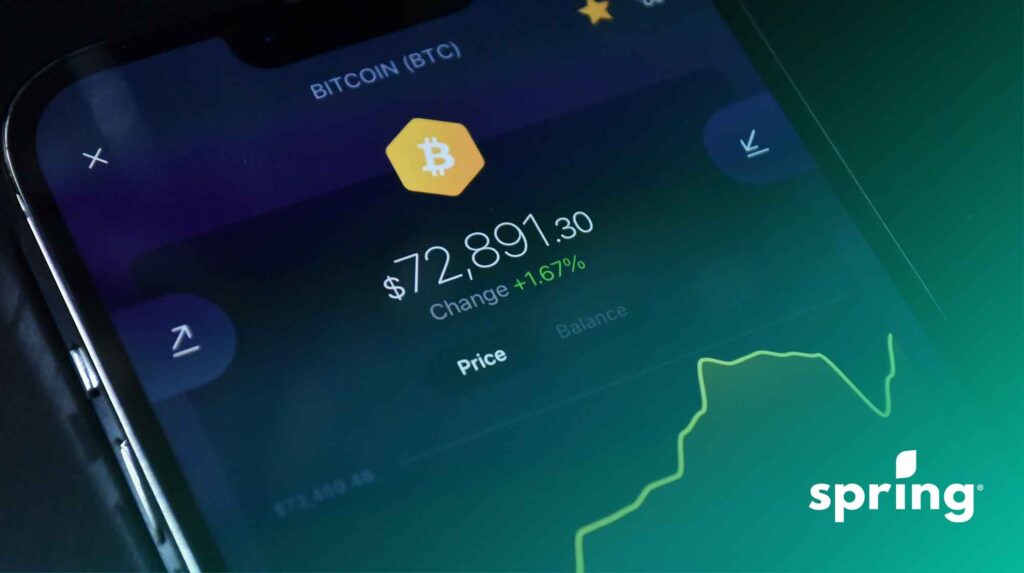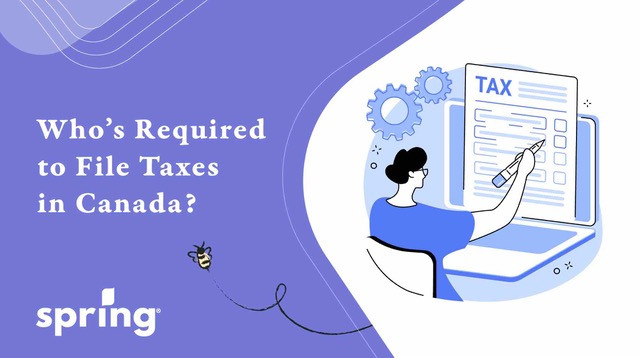Even though most people think the trading market is predominantly in the United States, there’s also a large trading market in Canada. Many of the trading platforms that are available in Canada only operate in Canada, while others have strictly Canadian markets.
With the intense competition out there, we are starting to see more American companies developing Canadian versions of their platforms, giving even more choices to the market. Before we go into too much detail regarding trading platforms, what exactly is a trading platform?
What’s a Trading Platform and How Do They Work?
A trading platform is essentially a software system that is meant for traders to trade different types of securities. Investors are able to open, close, and manage different markets through an online broker. Different trading platforms offer different account fees and discounts for managing so many trades per month.
These types of programs also allow traders to keep tabs on their accounts as well as different trading tools, depending on the experience level of the trader and the type of trading that is happening. Generally, these are broken into 2 platforms: commercial and proprietary.
In Canada, these markets are monitored by the Investment Industry Regulatory Organization of Canada. They are there to oversee all investment dealers and trading activities and set and enforce the rules.
Commercial Platforms
These types of platforms are meant for day traders and retail investors. They are easy to use and offer many useful tools, such as:
- Real-time quotes
- International news feeds
- Live and interactive charts
- Educational content
- Research tools
Proprietary Platforms
These types of platforms are not available to the public. Large brokerages and financial institutions develop these for their own trading activities.
How do you choose a trading platform?
There are a few things to consider when choosing a trading platform.
- First, it is important to consider what specific things you need in a platform. What are you trading? How experienced are you? Are you a beginner and need something more learning-focused? All of these things make a difference.
- Next, make sure not to pick your trading platform based on what others are choosing. Take your individual needs into account and then go from there.
- It is also important to make sure the platform is user-friendly and meets your needs. It may take a while to master the program itself, but as long as you can understand the basics of it, the platform may be a good fit for you.
- The platform should also be stable. By using a platform that is steady and efficient, you’re increasing your chances for success.
- Pay attention to their fees, including any inactivity fees, annual fees, and low trading fees.
- The final thing to keep in mind is the fee structure of the trading platform. Some are more expensive than others, so it is important to compare the price of trading fees with the features you need and find the best program for you without paying too much.
Another thing you need to keep in mind is whether you’re doing level 1 or level 2 investing.
What are Level 1 and Level 2 Investing?
If you’re trading on the Canadian stock market, there are 2 different levels of investing. Level 1 trading is used with stock trading and displays the best bid-offer-volume quotes in real time. These quotes supply basic information that is normally more than enough for most traders. However, some traders do want more information than is found in higher-level quotes.
In Level 2, trading the quotes at market depth to the quote, typically up to the 5-10 best bid and offer prices. Level 2 trading is typically used by more active traders and can be quite complex for those new to trading.

Best Online Trading Platforms
There are so many of the best stock trading platforms out there that it can be difficult to know where to start. While there are some great options for beginners, free options, and ones that are great for day trading, here are a few options that work for other specific needs. Whether you trade stocks, cryptocurrency, ETFs, or anything else, all platforms are different and cater to different needs.
BMO Investorline
This program is considered to be the best for personal advice, so if you’re a person who wants personal financial advice on what is best to do with your money, this could be a good option. No matter which market you choose to trade in, whether it be something common like the TSX (Toronto Stock Exchange) or something a little more foreign, they are able to help.
There’s a catch, though: this is only available for a minimum investment of $50,000 and an annual fee starting at $750. However, this does get you financial advisor experience, digital tools, help setting up your portfolio, and ongoing account monitoring with alerts and anytime advice from a financial professional.
It also gets you a minimum monthly total of 30 trades included with the annual fee instead of paying per trade. If you’re more active and make at least 15 trades per quarter, you could be enrolled in the BMO Investor Line’s 5-star program, which holds even more perks.
CIBC Investor’s Edge
Another popular option is CIBC Investor’s Edge. This is a great paid online broker option that has account maintenance fees. Prices start at $6.95 per trade, whereas it is usually $10 at the other 5 big banks. It is even cheaper if you’re between the ages of 18 and 24 and can trade for free with a CIBC Smart Account.
Students over 25 only pay $5.95 for trades. They even have a program for active traders with high volumes that involves an Active Trading Pricing of only $4.95 per trade.
This platform offers various forms of customer support, including chat, phone, and email. It is important to note that all of the trades done with CIBC Investor’s Edge, which are US transactions, are done in US dollars.
TD Direct Investing
If your approach is more technology-oriented, then your best bet would probably be a TD Direct Investing account. The price of trades is $9.99 each, but it is the largest online Canadian brokerage with some of the best trading software.
They have web and phone apps with a customizable dashboard, access to market research, and advanced order types. They also have an advanced dashboard that has streaming market data and advanced market research.
Just like the other platforms, there are discounts for those who trade a lot. The advanced dashboard features are free if you’re making over 30 trades per quarter, and those who are doing more than 150 trades per quarter get trades for only $7.
If technology-based isn’t ideal for you, don’t worry; there are plenty of other choices. This can be daunting if you’re a beginner and might not be the best place to start.
Other Options
If the options above don’t suit your needs, there are a few other choices. These include RBC Direct Investing, National Bank Direct Brokerage and Q-trade Direct Investing. Each of these brokerages has its own key features, low or no trading fees, and minimum account balance requirements. Some of them even have market data packages available on their online brokerage platforms.
With these online brokerages, you can also invest the funds in tax-free savings accounts, registered education savings plans, and registered retirement savings accounts. Many also offer real-time data and real-time market data to help you make the best investment decisions. Each of these stock trading platforms also offers a robust stock research center with data, but it may come at an extra fee.
Best Canadian Trading Platform for Beginners – Scotia iTrade
If you’re a beginner when it comes to looking at a trading platform, it can be hard to figure out which is the best one to use. Don’t worry, though, we can help you with that. While there are many great platforms out there, this one is the best for beginners.
The best overall platform for beginners in Canada is Scotia iTrade. Scotiabank’s online brokerage offers lots of tools to help you get started, and they even allow you to open a practice account that allows you to try out trading with no risk.
If you’re under 26, Scotia iTrade has a program that allows you to save up to $200 per year on Administration fees. They also have a program for new Canadians, the Scotiabank StartRight program, that includes 10 free trades.
Not only do they have some great perks for beginners, but they also have some for customers at all stages. Once you have started an account with Scotia iTrade, trades cost $9.99, but new members who fund an account with more than $5000 can get up to $25 cash back or up to 10 free trades for every $5,000 they invest.
They even offer iClub Gold and Platinum memberships to those who invest over $250,000 and $1 million. These customers get waived fees, preferred trade pricing, and priority service.
Best Trading App
Another option when looking for a trading platform is to use a trading app to trade on Canadian and global markets. While some are free and some aren’t, if you’re looking for something that does a bit of everything and allows you to control your trading right from your phone, that would be Questrade.
Questrade
Questrade is a Toronto-based company that started back in 1999. It is an online brokerage that offers many financial products to Canadians to help them manage their own investments. A few of the things they offer are:
- Stocks
- ETFs (Exchange Traded Funds)
- Bonds
- Mutual funds
- Foreign exchanges
- GICs
- Precious metals
While Questrade is not a free platform, it has some of the lowest trading fees. You can trade for 1 cent per share, but there’s an account minimum commission of $4.99. They are also super flexible and offer registered and non-registered accounts, which basically means bank accounts that have yearly limit caps (registered) and accounts that don’t(non-registered).
They also offer desktop trading platforms as well as an app and a robo-advisor that allows for a different approach to investing. This is known as Questrade Portfolios.
Not only is Questrade the best trading app, but it is also the best overall trading platform in Canada and the most trusted.
Best Free Platform
Another great app option, especially if you’re looking for a free trading platform, is Wealthsimple Trade.
Wealthsimple Trade
The biggest difference between Wealthsimple Trade and other trading apps is that you can buy and sell your investments for free, while most other companies charge $10 per trade. They also don’t have a minimum investment. The only investments they have fees on are ETFs, and those are charged by the ETFs themselves. They also charge a 1.5% premium on any US exchange because they have to.
When it comes to the products offered by Wealthsimple Trade, they don’t have as wide a variety as Questrade does. They don’t support account types like:
- GICs
- Mutual funds
- Bonds
- Securities
- Preferred shares
They are also very lean on what they offer. They only let you trade certain stocks and ETFs. They have to meet certain criteria and be eligible for the Canadian Depository Receipts.
While there are some limitations to what this platform allows, it is a great way to get used to trading and use a platform that does not charge commissions.
Best Day Trading Platform
If you’re looking into day trading, rather than just occasionally trading, the best online broker is Interactive Brokers.
Interactive Brokers
There are many reasons why Interactive Brokers is considered the best.
- They have low annual fees
- No Minimum balance is required
- Exposure to international stocks
- 150 exchanges in 35 countries
- Offers trading in 25 currencies
Interactive Brokers also supports fractional share trading in Canada and is the only online brokerage to do so. On top of all that, they have low brokerage fees that are determined by account balance. If a balance is over $2,000, the fee is only $1,0, whereas the fee is $20 if the balance is below $2,000, unless you’re under 25, then the fee is just $3.
They also offer a stock research center and have an app. This online brokerage is very flexible and offers both fixed and tiered pricing. This is also the best platform for level 2 trading.
If you’re looking to day trade and need a platform that is flexible with low fees, then this is probably the platform for you.
Best Cryptocurrency Trading Platforms
We have looked at a few different trading platforms, but what about cryptocurrency platforms? Here are the top 3.
BitBuy
BitBuy has been around since 2016 and is now used by over 400,000 Canadians. Not only does BitBuy allow you to buy Bitcoin, but it also allows you to purchase 14 other currencies, such as:
- BCH
- ETH
- LTC
- XLM
- EOS
- AAVE
- LINK
- DOGE
- DOT
- ADA
- UNI
- SUSHI
- MATIC
- SOL
The best part of BitBuy is that setting up with them is easy. You can open a verified account in less than 5 minutes. Funds can be deposited via interac e-transfer, and the minimum deposit amount is only $50. These e-transfer payments are charged at only 1.5% and are credited to your trading app almost instantly.
The commission on BitBuy is only 0.20% per slide, and the app has 24/7 customer support. They also have a BitBuy pro section for traders who are more experienced and utilize more advanced and diverse trading tools, like:
- Live order books
- Technical indicators
- Customizable timeframes
On the opposite spectrum, they also have Express Trade, which allows you to invest in cryptocurrency.
Not only does BitBuy take helping its customers seriously, but it is also approved by the Ontario Securities Commission and registered with FINTRAC, indicating that it also takes regulations seriously.
Crypto.com
Crypto.com offers a wide range of products and services. Once you sign up, you have access to over 250 coins, which allows you to create a very diverse portfolio. This platform accepts debit and credit cards in order to deposit funds into your account, allowing you to access those funds almost immediately.
The fee system for Crypto.com is based on Volume. If you trade in small volumes, you pay 0.40% per slide. If you hold CRO (Cronos, the native token of this platform) tokens in your staking wallet, you will be offered lower fees than that.
Another thing this particular app is known for is its NFT marketplace. This gives you plenty of NFT options, and buyers don’t pay commission fees. It also makes it really easy to spend your crypto earnings by offering prepaid Visa debit cards.
The minimum deposit for Crypto.com is $20, but even though this trading platform offers many great things, it is not well-suited for beginners and can be slightly complex to use without previous experience.
Binance
Binance is a crypto app that has platforms all over the world. The Canadian platform has access to the global platform, which is a huge bonus when trading. This means you have access to 600 cryptocurrencies and 1,000-plus markets.
Just like the other crypto apps, Binance offers low fees. Unless you’re trading in significant amounts, the standard commission fee is only 0.10%. And just like crypt.com, you get a discount if you hold the native tokens in your account; in this case, it is BNB. The discount is 25%.
This program accepts debit and credit card deposits, bank transfers, and crypto deposits. They offer quite advanced trading tools and are most often used by experienced traders. However, even though it does offer tools like technical indicators, chart drawing tools, and live order books, it is also a great way for beginners to learn. They also have a feature that allows you to hold onto your earnings, almost like a savings account, and earn interest on them.
Binance, unlike the other two platforms, is not regulated by any licensing body, and it has been hacked before.
Best Trading Platform for ETFs
For some people, trading cryptos or stocks may not be the way to go. They might prefer to trade ETFs. ETFs, also known as electronically traded funds, are funds that trade on exchanges.
These exchanges are generally tracked on a specific index. Investing in ETFs diversifies your portfolio and gives you multiple assets to buy and sell. The easiest way to think of these is that they are similar to mutual funds, except they are not really influenced by human intervention as much as the market itself.
If you’re looking to trade ETFs in Canada, Qtrade Direct Investing is the best option. They have over 100 ETFs you can trade for free as long as you hold onto them for at least 1 business day.
Even though they are a great option for ETF trading, they also allow you to trade other types of investments at $8.75 per trade with only $7.75 per trade cost for those 18-30. They also offer a special price of $6.95 per trade for active traders with more than 150 trades per quarter.

Are There Risks to Trading?
Just like any form of investing, there are always risks, but depending on how much you invest or what you’re investing in, there are ways to mitigate your risk.
The first way is to do your research. The more knowledge you have regarding what you’re investing in, the less risk there is. It is also important to use the tools provided by the different trading platforms to help you make the most informed decisions. Here are a few things to consider.
- Plan your trade – Make sure you are using the correct trader for what you are planning to trade, and plan your price points of the stock. Set an amount you want to earn off the trade, then sell when it hits this. Relying on emotion could result in loss.
- 1% rule – This basically means to never put more than 1% of your trading capital into one specific trade. If you are dealing with a higher capital, then the rule changes to 2% but anything above that could result in significant losses.
- Set a loss limit- Similar to above, set an amount you are willing for a stock to go as low as before selling it and sell it once it hits that amount. This also helps to minimize loss.
- Diversity- Lastly, it is to invest in a diverse type of investments by market type and even by geography. This can help you lose as well as open you up to more opportunities.
But what if you invest your money through a firm, and that firm goes under? Is there anything available to help you in this case? Well, there’s something called the Canadian Investment Regulatory Organization as well as the Canadian Investor Protection Fund (CIPF).
Canadian Investor’s Protection Fund
This fund provides limited protection for property held by a firm member on behalf of an eligible client if the firm goes under. All member firms are a part of the Investment Regulatory Organization of Canada, which also makes them automatic members of the Canadian Investor Protection Fund.
This fund does not provide any protection from trading stocks, only if the investment firm you’re working with goes under. They will make sure that any property being held with that firm at the time it is dissolved will be returned to you within a certain limit.
The following things qualify you for CIPF
- Having an account that is in the member firms’ records.
- The firm becomes insolvent.
- The firm fails to return the property that was held on your behalf.
However, you will not be approved if you:
- Contributed to the insolvency of the firm
- Are you a director or general partner
- Are Shareholders or limited partners with 5% or more in shares
- Is another IIROC (Investment Industry Regulatory Organization) firm
The only property that CIPF covers is cash, securities, futures contracts, or segregated insurance funds.
Brokers and Purchasing Stocks
While purchasing stocks with a broker is the easiest way to buy, trade and sell, it isn’t the only way. You technically don’t need a broker to invest in stocks. That said, in order to purchase without a broker, you do need to purchase the stocks from the company directly.
When purchasing stocks directly, you need to know which company you are looking to purchase from. This requires a little more research than using a broker. You’ll also need to figure out the process for buying the shares directly. Each company does this a little differently. However, this is the best way to guarantee commission-free trading.
Why Trade Stocks?
Honestly, trading stocks or other commodities can be difficult, and it isn’t for everyone. However, if you do choose to go in the trading direction, there’s a ton of information out there, and most of it can be found on the online trading platforms themselves. There are also a variety of stocks to choose from, including international equities. Plus, there are many discount brokerages that provide the same functions as trading accounts with traditional brokerages.
Whether you have some experience and are just looking to expand your portfolio or you’re just starting out, any of the trading platforms listed above can help you out. With the right guidance, trading can help set you up for a healthy financial future. Even though success isn’t guaranteed, you don’t have to take unnecessary risks.
Reasons to Use a Trading Platform
While we have listed the best trading platforms above, what we didn’t go over was why you should use an online brokerage account like RBC Direct Investing Accounts and CIBC Investor Services. These include:
Convenience: When you use an online brokerage account for both Canadian and US stocks, you have access to all markets, including international markets, at all times. These extended trading hours allow you to make the most of your trades and make them whenever you choose.
Lower Fees: With a simple trading platform, you’re going to find that you have lower transfer fees, management fees and currency conversion fees. With self-directed investing, you can even get free ETF purchases with your investment accounts. This is a great option for those who like Forex trading.
Control: Whether you invest in stock and ETF trades or paper trading accounts, you can gain access to your own portfolio through the best online brokerages at any time. You can modify and cancel your orders, as well as sell stocks at any hour of the day.
Data: Online brokerages allow you to gain access to advanced charting tools and technical analysis tools. These allow us to make the most informed decisions with the most up-to-date information. Most brokerages offer this and can help with purchases like TD Exchange-Traded Funds.
Diverse Options: With online Canadian Brokerage Firms, you can purchase a variety of different securities. Each platform offers a different variety, and more than traditional investment firms do.
Education: Most online brokerages have educational tools that they offer to both beginner and experienced investors. They also offer different courses if you choose, and real-time data that you can access at any time.
Can Spring Financial Help?
Starting in the trading market can be overwhelming, and while we are not involved in the markets, we specialize in personal loans and can help you get started with some money.
We offer personal loans ranging from $500 to $35,000 that can be e-transferred to you as soon as today. We offer competitive rates and can help with all credit scores. If you want to get started today, you can give us a call at 1-888-781-8439 or apply online in only 3 minutes.








